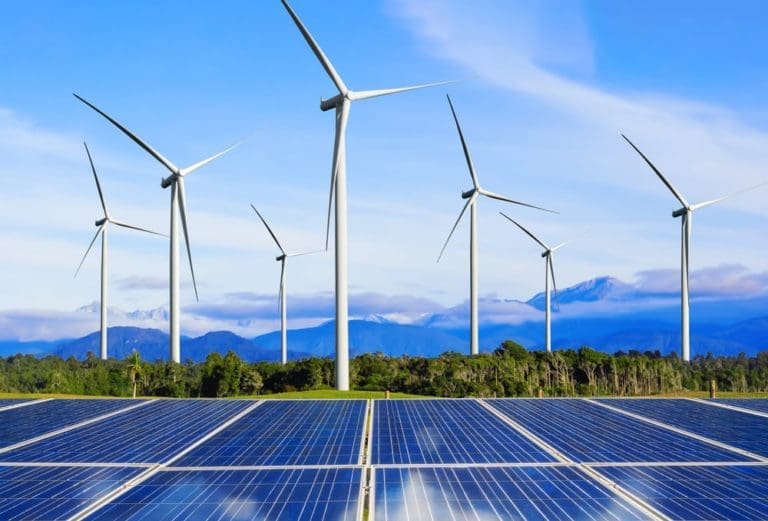by Mzukisi Qobo, University of the Witwatersrand
Since the UN Climate Change Agreement was signed by 196 nations in December 2015, many countries have announced policies to reduce their fossil fuel emissions.
Their commitments are set out in nationally determined actions they’ll be taking to achieve this.
But the transition must navigate political economy tensions, especially in developing countries.
Take South Africa, for example. It has deep-seated socioeconomic challenges, such as inequality and unemployment. Its unemployment rate (including people who have given up looking for jobs) is unacceptably high at 42.5%. The country is also among the most unequal in the world.
And inequality remains mostly delineated by “race”. The mainstream economy remains predominantly owned by the white minority almost 30 years after democracy.
South Africa is under pressure to move from fossil fuels to green energy, with a strong emphasis on renewable sources.
It has developed a just energy transition framework and a just investment proposal that has so far yielded €600 million in concessional finance from France and Germany.
The country is yet to formulate a systematic transition plan, however. Such a plan would be underpinned by a social contract, supported by a broad range of stakeholders and affected groups.
Moving to green energy will affect those directly employed in the coal mining sector. This is a fifth of those employed in the mining sector. That means 108,000 out of 514,859 people.
The ripple effects of the transition will also be felt across the value chain – from mines to markets and into people’s homes.
Making the green energy transition a success requires that the government pay attention not just to environmental factors, but also to socioeconomic needs. It must pay special attention to the impact on workers and communities in mining areas, and the macroeconomic effects of dwindling foreign exchange earnings and taxes.
Ignoring socioeconomic issues risks a populist backlash that could slow a necessary transition to a green industrial economy.
Socioeconomic imperatives
The core mission of South Africa’s a shift towards green energy should be to achieve economic growth, rising employment, and greater equity and inclusion. It must do all this while minimising social risks.
A green energy transition that is not anchored in fairness and inclusivity could potentially multiply socioeconomic risks.
Any efforts to move away from fossil fuels must cover three key areas. These include retraining workers who face retrenchment, and developing supply chains that give opportunities to small, micro and medium enterprises.
3 key elements for a sound green transition plan
- Retrain workers in the coal industry who will be retrenched in the process, and offer them an alternative source of livelihood. The transition, as the World Bank proposes, requires a “whole-of-society” approach. This should entail engagements with everyone who is affected to ensure that no one is left behind.
- Promote inclusive supply chains to enable greater participation of small, micro and medium enterprises, especially in small equipment manufacturing activities, installation, civil works, retail and maintenance.
The Organisation for Economic Cooperation and Development notes that
small and medium enterprises can be important drivers of green and inclusive growth. They can be encouraged to adopt green strategies as part of their preconditions for participating in the supply chains of major firms. - Enhance energy security by attracting investment into other cleaner sources of energy. For example, the European Union is considering reclassifying nuclear as part of green energy. Major countries such as France insist on “technology neutrality” to include nuclear and hydrogen in their energy mix, rather than to privilege solar and wind energy sources that do not have baseload. Lack of baseload compromises energy security.
Renewable energy sources provide intermittent power, depending on the availability of sun or wind, whereas average demand requires consistent supply. Europe’s predicament in the wake of Russia’s war on Ukraine best illustrates this: as soon as Russia throttled Europe’s gas supply, governments rationed electricity to curb demand. Or they ramped up the demand for coal from countries such as Colombia, Australia and South Africa to ensure baseload.
A wide lens
As countries march towards a brave new world of green technologies, they must ensure that those left behind, and trapped at the bottom of the old industrial economy, are at the helm of the new economy. The transition to the ideal state must reflect a broad energy mix, rather than leaning on a narrow set of technologies that may not adequately offer energy security or produce just and equitable outcomes.
South Africa must balance environmental concerns, socioeconomic imperatives and energy security in its transition strategies.
For this to be possible, the answer, according to the World Economic Forum,
will very likely have to be a combination of institutional capacity building, well-chosen policies and a substantial contribution by the international community – technologically as well as financially.
Mzukisi Qobo, Head: Wits School of Governance, University of the Witwatersrand
This article is republished from The Conversation under a Creative Commons license. Read the original article.

